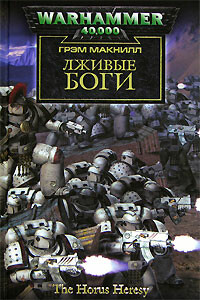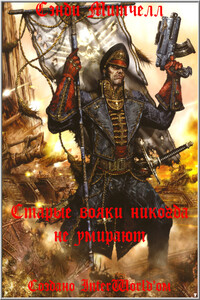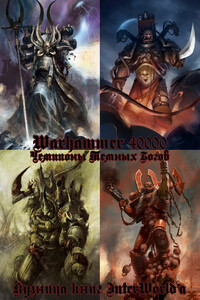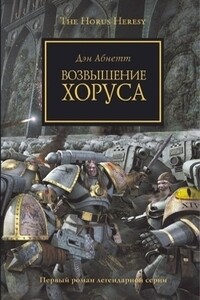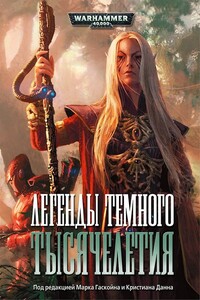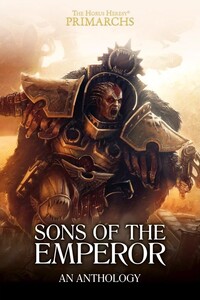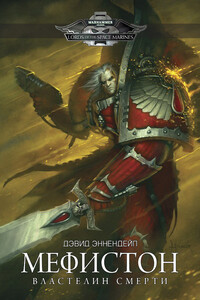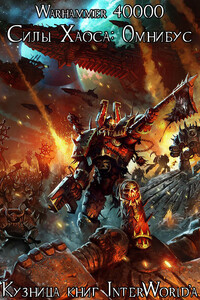It was their legacy.
Surface scans had shown another Chrome family group of significant size moving around the blisternest. Daylight Wall had led the way across the river, with two walls at their heels and another crossing further up. The river was broad but slow and heavy, no more than waist-deep, and muddy. The brackish water fumed with insects.
The Chromes started to resist when they saw the Imperial Fists wading out to the nest side. Some plunged into the water and attempted to attack. Shooting began, brothers firing from the soupy water, pushing the foe back, driving the Chromes up the claggy banks even as the xenos gathered in greater numbers to plunge in. The enemy became agitated. The slow tide was soon full of Chrome corpses, spinning end to end as they drifted downstream. The Imperial Fists advance seemed almost sullen; they came slowly, trudging through the stinking water, firing because they had to at targets too ridiculously easy to hit.
Slaughter roused his men. If they were going to engage, they were going to do it with dignity. They were coming up the bank, approaching the huge, septic shape of the blisternest rim.
‘Daylight Wall stands forever,’ he voxed. ‘No wall stands against it. Bring them down.’
The men of the company clashed their boltguns and their broadswords against their combat shields and chanted the refrain back. The advance began to accelerate.
A wall of men. A wall of supermen.
Slaughter reached the bank. It was a steep, slick mire threaded with coarse vegetation. Glinting in the smoky light, Chromes bounded down onto the ridges, rising up into threat postures and challenging him. He came out of the water, oily green moisture trailing off his yellow armour. Frenzy was at his left hand, Heartshot was at his right.
The first of the Chromes came at him.
Slaughter’s broadsword was a two-handed power blade with a silver cross-hilt and a black pommel. It had fought at Terra, during the Siege, in the hands of a Fist called Emetris, who had fallen there. It was as broad as a standard human male’s thigh. He brought it up and it described an arc in the air as the first Chrome leapt. It split the xenos through its gleaming bio-armour and cut it in two. Ichor showered in all directions. A second sprang, and he smashed it aside, slashed open. A third met the blade, impaled itself, and thrashed wildly until he ripped the sword back out.
It was just the beginning. They started to rush. A dozen, two dozen, all at once. Slaughter liked sword-work. It was economical. It saved munitions for more significant moments. The broadsword was a finely balanced instrument in his huge hands. The two-handed grip could turn and shear each swing in a surprisingly subtle number of ways.
Slaughter began to slaughter.
He left a trail of dead behind him: ruptured silver husks weeping ichor into the matted, trampled vegetation. Each step was an impact as another two or three Chromes came at him and were met by the brute, full-stop force of his blade. Organic debris flew from each killstroke. Ichor and other xenos fluids squirted high into the air and dappled his armour like dew, like rain.
Frenzy tore through the stand of dry weeds to his left, swinging an axe that had been the proud possession of a series of Fists since before the Great Crusade. The curve of its bite had been notched by the skull of a green warboss during the Malla Vajjl compliance. Frenzy, a big-hearted generous man, possessed particularly acute hand-eye coordination. His movements were so fast and precise, they seemed almost random. He had earned his wall-name through his grace on the field, the constant motion, the changing grips, the reversals, the back-steps, the aggression. His axe moved from grip to grip like a baton or a staff whirled by some ceremonial parade-ground officer. It seemed to fly from his hand many times as he turned and changed position, but it never left him. Like Slaughter, he had eschewed his bolter for the clearance work.
Slaughter wished he could stop and admire the battle-craft of his friend and brother, but there was no opportunity. The enemy’s numbers were increasing.
